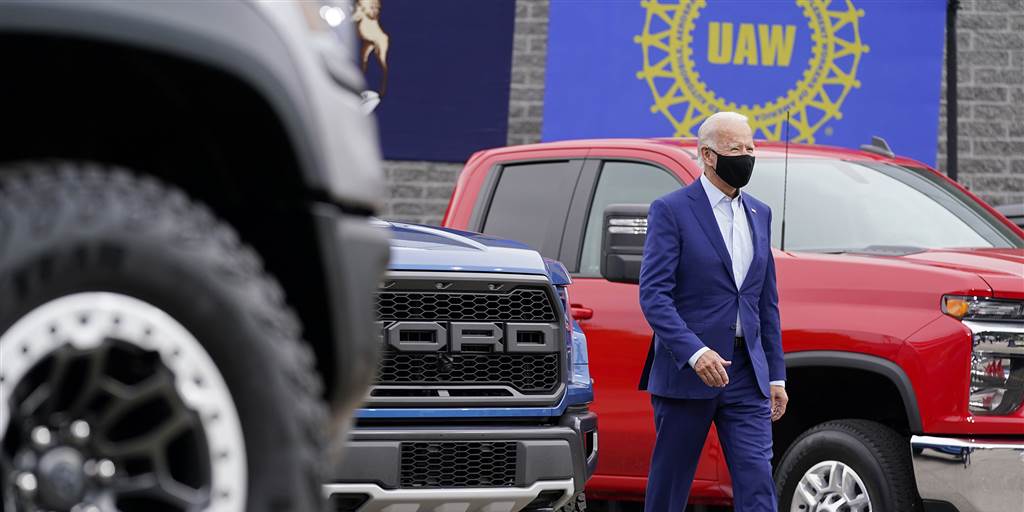Since entering the Oval Office, President Joe Biden has made it clear that addressing climate control will be a major priority during his administration. In the first few weeks of his term, Biden has signed several executive orders in an effort to transition the US to a clean energy economy. One of his executive actions included establishing climate change as a national security priority, conserving at least 30% of federal land and oceans by 2030, and canceling new oil and gas leases on public lands and waters. Biden also signed an executive order to revise fuel economy standards originally established by the Trump administration to halt California’s effort to set its own emissions regulations.
Climate change legislation has also extended to the state level, where many states are making decisions that could impact car sales in the near future. Many states are considering or have passed legislation to ban new gasoline-powered vehicle sales in the next 10-15 years.
States making changes
In September of 2020, California Governor Gavin Newsom signed an executive order “requiring sales of all new passenger vehicles to be zero-emission by 2035.” If California moves forward with banning new gas-powered vehicle sales in the next fifteen years, the state’s infrastructure for electric vehicles (EVs) will have to drastically change in a short period of time. Currently, California has approximately 763,000 electric vehicles on the roads. The state currently houses 45% of all EVs in the country. However, a report from the California Energy Commission said that it will take close to 8 million EVs on state roads to meet Newsom’s order.
New Jersey followed suite in pushing EVs as well. Last year, Governor Phil Murphy signed the Plug-In Vehicle Act of 2020 (PIV ACT), legislation aimed at increasing the state’s efforts to electrify its transportation sector. The PIV ACT created an ambitious $5,000 rebate program for EVs to help stimulate the market. In the course of 11 months of the program, over $21.6 million and 6,000 rebates for EVs were distributed to New Jerseyans. The PIV ACT expects over $30 million to be disbursed by March 2021, as well as 400 DC Fast Chargers and 1000 Level 2 chargers publicly available by 2025.
Massachusetts also made plans to phase out sales of new gasoline-powered vehicles by 2035, after Governor Charlie Baker made the proposal as part of his Clean Energy and Climate Plan for 2030.
“I’m really excited to see Gov. Baker moving forward to address global warming pollution from cars and get more zero-emission vehicles on the road,” said Morgan Folger, Director of the Zero Carbon Campaign at Environmental America.
Where auto dealers stand
Not all auto dealers are accepting these monumental changes that could have a long-term impact on their business. While the state of Minnesota has pushed to adopt the Midwest’s first zero-emissions vehicle mandate, the Minnesota Automobile Dealers Association sued the Minnesota Pollution Control Agency over its new regulations. The proposed zero-emissions vehicle rule is open for public input until March. An administrative hearing concerning the matter is set for February 22-23.
On the other hand, some auto dealers see change as inevitable and have started preparing for a zero-emissions future. The Virginia Automobile Dealers Association (VADA) recently said it will support proposed legislation in the General Assembly that would adopt vehicle emissions standards set by California no sooner than 2023 and no later than 2025.
“After numerous discussions with legislators and various impacted parties, it is clear this legislation can proceed as we are comfortable with the understanding and commitment shown by legislators to address other major components of this issue,” said Don Hall, President and CEO of VADA, in a memo to state lawmakers and lobbyists.
Phasing out gas and diesel engines
Overseas automakers, like Bentley and Volvo, have made plans to become fully electric over the next decade. Among the major US automakers, General Motors has publicized their intentions to sell EVs exclusively by 2035. The all-electric plans are a major step in helping the company reach its goal of becoming completely carbon neutral by 2040.
As GM moves away from gas-powered vehicles it will be interesting to see how other American automakers such as Ford and Stellantis will respond to the tightening emissions regulations.
Did you enjoy this article from Josh Isley? Read other articles from him here.
Be sure to follow us on Facebook and Twitter to stay up to date or catch-up on all of our podcasts on demand.

While you’re here, don’t forget to subscribe to our email newsletter for all the latest auto industry news from CBT News.








